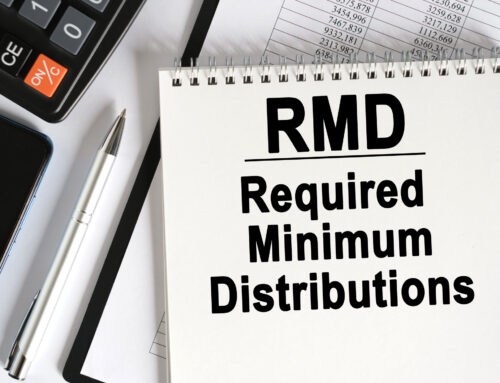
You’ll likely have several sources of income in retirement that can be taxed, such as IRA distributions and Social Security benefits. But, do you have any after-tax “buckets” that you can use strategically in retirement to help reduce your tax bill? There may be a few options available to you, so know how they work.
How is a Roth IRA Different from a Traditional IRA?
Many people contribute pre-tax dollars to a traditional IRA during their working years. When money is distributed, it’s taxed at ordinary income rates. In contrast, a Roth IRA is funded with after-tax dollars. A Roth IRA can be a valuable asset in retirement because qualified distributions are not taxed, unlike distributions from a traditional IRA.[1]
What If You Don’t Have a Roth IRA?
Even if you haven’t contributed to a Roth IRA in the past or you’re not eligible to, you may be able to take advantage of the backdoor Roth strategy. Individuals with income over $144,000 and couples filing jointly with income over $214,000 cannot contribute directly to a Roth IRA. Those who are able to can only contribute up to $6,000 per year if under age 50, or $7,000 per year if over age 50.[2] However, anyone has the option to convert any amount from a traditional IRA, 401(k), or similar qualified retirement account into a Roth IRA, regardless of income.
In this case, you would pay tax on what you convert and then be able to withdraw money tax-free later on. Keep in mind that Roth IRA conversions are now irreversible and that money can’t be withdrawn penalty-free until five years after it’s converted, and typically not until age 59 ½.[3]
Do You Have an HSA?
Not everyone can contribute to a Health Savings Account (HSA), but if you can through your employer, consider doing so. The benefits of an HSA are that contributions are not taxed, funds grow tax-deferred, and can be withdrawn tax-free for qualified medical expenses. Before age 65, you can’t use funds from an HSA to pay for non-medical expenses without incurring a 20% penalty. But, when you turn 65, you only have to pay taxes on withdrawals for non-medical expenses, and you do not have to pay taxes on withdrawals for qualifying medical expenses. Qualifying medical expenses include Medicare Part B and Medicare Advantage plans, prescription drugs, a portion of long-term care insurance premiums, dental, and vision care.[4]
There may be unexpected taxes in retirement that could add to your tax bill. To offset the impact of your taxable sources of income in retirement, you may consider a Roth IRA or an HSA as two of many potential tax strategies. At Epstein & White, we can help you create a long-term tax minimization plan that works with your overall retirement plan. Click here to sign up for a time to come speak to us to learn more.
[2] https://www.investopedia.com/terms/r/rothira.asp
[3] https://www.investopedia.com/terms/r/rothira.asp
[4] https://www.investopedia.com/articles/personal-finance/091615/how-use-your-hsa-retirement.asp
Please Note: Epstein & White is a tradename. All services provided by Epstein & White investment professionals are provided in their individual capacities as investment adviser representatives of Mercer Global Advisors Inc. (“Mercer Advisors”), an SEC registered investment adviser principally located in Denver, Colorado, with various branch offices throughout the United States doing business under different tradenames, including Epstein & White. Information contained herein is for informational and illustrative purposes only and general in nature. It should not be considered investment advice or a recommendation to buy or sell any type of securities or insurance products and no investment decision should be made based solely on any information provided herein. We provide this information with the understanding that we are not engaged in rendering legal, accounting, or tax services. We recommend that all investors seek out the services of competent professionals in any of the aforementioned areas.
Investment in securities carries a risk of loss, including loss of principal amount invested. Different types of investments involve varying degrees of risk. It should not be assumed that diversification or asset allocation protects a portfolio from loss or that such will produce profitable results. An annuity’s guarantee is subject to the claims-paying ability of the issuing insurance company.




